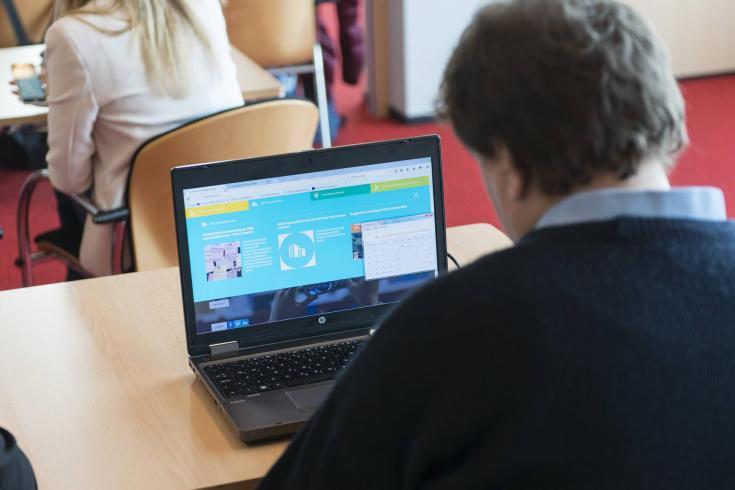Webinar recording: Competitive advantages through collaboration and innovation

On 10 June 2021, the Policy Learning Platform hosted a webinar on competitive advantages through collaborative and open innovation.
The webinar presented some approaches on how local, regional and national authorities can contribute to promote and foster innovation and innovation-driven entrepreneurship by building on the open innovation paradigm.
We especially explored bottom-up approaches focusing on improving the innovation capacity of existing businesses and solving their specific innovation challenges.
Strategic top-down approaches focusing on solving major societal (health, food, mobility, etc.) or strategic technological (digitalisation, advanced manufacturing) challenges identified on national or European level are often addressed by building larger innovation hubs (e.g., campus-like initiatives). They are equally relevant and shall be treated in a further online learning event.
The first part of the webinar focused on practices aiming at opening up businesses to the innovation potential of students, with presentations from University of Latvia (Latvia) and Laval Mayenne Technopole (France).
The second part of the webinar focused on practices aiming at opening up businesses to the innovation potential of start-ups, with presentations from Lazio Innova (Italy) and SPRI, the Department of Economic Development, Sustainability and Environment of the Basque Government (Spain).
Watch the webinar below and access the presentations.
Webinar recording
Webinar agenda
Moderation and concept by: Luc Schmerber and Mart Veliste, Thematic Experts of SME competitiveness.
00:12:00 Introduction presentation to the topic and Policy Learning Platform services by Luc Schmerber.
00:16:15 Presentation by Signe Adamoviča on the open innovation Platform Demola in Latvia
00:29:15 Q&A: Who pays for the €4000,- scholarships for the students? What costs are eligible? And is that for laboral contracts for services/products delivered?
00:32:06 Q&A: It seems like cheap consultancy for companies. Is there no possibility to increase the fee based on the implementability of the solution?
00:33:39 Q&A: How sustainable is your initiative without EU funding?
00:35:26 Presentation by Charlotte Duval on Challenges & Competencies
00:44:19 Q&A: Your logic is that students propose ideas, not companies. Why did you decide to develop the programme in this style?
00:45:52 Q&A: How does the recruiting of the companies work?
00:47:44 Q&A: Do you have parallel schemes that help students establish their own companies?
00:49:42 Presentation by Laura Santarelli on the open innovation challenge - supporting cooperation between corporates and startups
01:01:20 Q&A: What would be your advice to be efficient? How not become a facilitator in open innovation?
01:05:07 Q&A: Why did you decide to launch the initiative if private companies were already carrying out similar activities?
01:06:25 Presentation by Leyre Madariaga on the public-private acceleration programme Bind 4.0
01:15:35 Q&A: How did you recruit start-ups for the matchmaking part?
01:21:05 Q&A: What is the level of financial commitment?
Panel discussion
01:23:06 Q&A: Were you able to observe a change of approach in your initiatives towards open innovation? Is it something you can measure?
Key Learnings
- Building the necessary trust among companies, be they start-ups or medium and large corporates, to engage seriously in open innovation processes often requires a trusted facilitator, which can be a public business support organisation.
- Engaging businesses in open innovation requires some time as it implies a change of mindset. Experience shows that initial successes will help to attract and convince further businesses. However, building up and maintaining the connection with the different partners remains hard work.
- Engaging in open innovation requires institutional and personal commitment from the businesses. They need to get involved in the interaction with their innovation partners. The more open and honest the business is about their challenge or need, the better results they get from the open innovation process with students or startups. Withholding crucial information also means that the results will be less applicable.
- Open innovation practices do improve the innovation dynamics on the regional level, also for smaller businesses.
